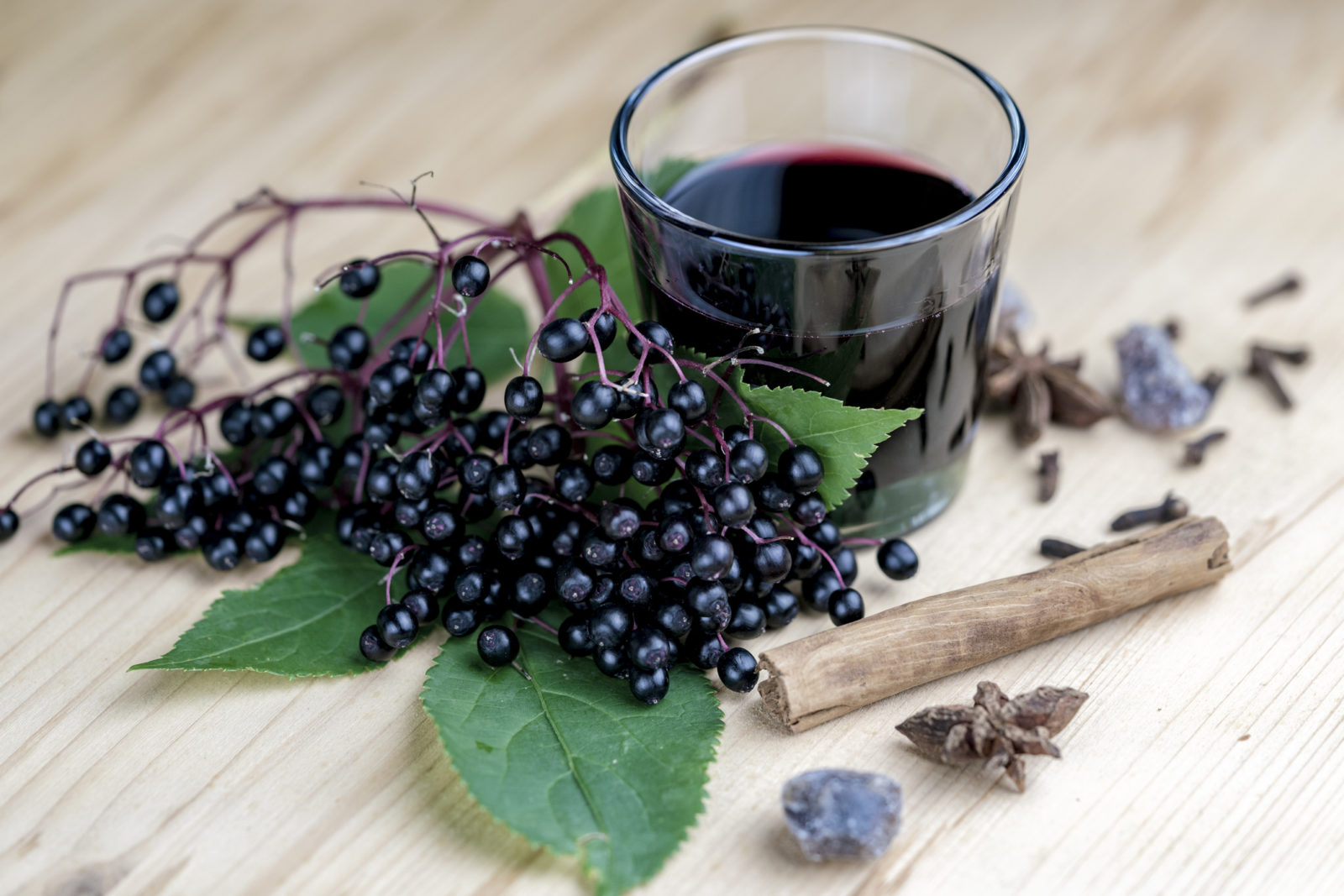Cold and flu season is in full swing. If you have kids in daycare or school, you know how quickly germs can spread through a classroom and then throughout your family.
There are certain things you can do to help prevent the spread of cold and flu, such as frequent handwashing, not sharing utensils and cups, and using paper towels in bathrooms while someone is ill.
Herbal remedies have also been making a more significant appearance on store shelves as people look for more natural remedies for colds and the flu.
Elderberry is one of those herbal supplements gaining popularity and space on store shelves. It comes in syrups, gummies, lozenges, teas, dried and fresh berries, and tonics.
So what exactly is elderberry?
It’s a flowering tree or shrub that refers to the Sambucus tree, which belongs to the Adoxaceae family. Most commercial elderberry products are made from the Sambucus nigra, or European black elderberry tree.
When the tree flowers, it blooms with small clusters of beautiful white or cream-colored flowers. The flowers can be boiled with sugar and water to make a simple syrup that tastes wonderful in cocktails or teas.
Elderberries grow in small blueish black bunches. In addition to their starring role in health-supporting supplements, elderberries can be cooked down into jams, jellies, pies, and even wine.
The Health Benefits of Elderberries
Elderberries are nutrient-dense, low in calories, and packed with antioxidants. Elderberries are high in vitamin C and dietary fiber and rich in phenolic acids and flavanols, which can help reduce oxidative stress on the body.
Their stunning blueish black color comes from anthocyanins, like those in blueberries, which are an antioxidant with anti-inflammatory effects.
These antioxidants and flavanols may have a beneficial impact on heart health.
It is the nutrients concentrated in the little berries that pack a mighty anti-inflammatory punch.
These nutrient-rich berries may help relieve symptoms of the common cold and shorten the length of flu. By providing the body with additional antioxidants, flavanols, and phenolic acids, the berries may help the body improve its own immune response.
Do Elderberries Work for Colds and Flu?
It’s no cure-all, so keep washing your hands and getting your flu shots, but it sure is a tasty addition to a wellness routine! There is little scientific evidence to suggest elderberry is effective in preventing cold or flu.
However, some evidence suggests it may shorten the length of these viruses or reduce symptoms.
A 2019 meta-analysis of randomized, controlled, clinical trials looked at black elderberry supplementation to treat upper respiratory infection symptoms. The analysis included 180 participants and accounted for vaccination status and cause of the infection. Elderberry supplementation was found to substantially reduce upper respiratory infection symptoms in subjects.
Another study in 2016, examined the effects of elderberry on air travel passengers and their symptoms during episodes of the common cold.
The group of air travel passengers receiving elderberry supplements had a lower number of cold symptom days and perceived less significant symptoms.
There are certainly promising results when looking at study outcomes; however, more large scale studies are needed. It is also worth noting that these research studies have all been done with commercially prepared elderberry supplements and that the safety and efficacy of homemade products have not been looked at thoroughly.
So if you are interested in the tasty and potentially health helping effects of elderberry, where should you start?
How to Use Elderberry
Try incorporating herbal elderflower teas, jams, chutneys, and sauces into your regular diet. If you’re looking for supplements to help minimize cold and flu–like symptoms, read the labels.
Like any herbal supplement in the United States, it’s important to note that there is no governing body (like the Food and Drug Administration) providing regulation over ingredient consistency and potency, the way medications have strict regulations when they appear on the market. So seals of approval, quality, or purity don’t have standard measure.
Because there is a certain amount of risk involved with any homeopathic remedy, especially those made at home, it is not recommended that children, pregnant, or breastfeeding women consume any elderberry products.
As with any supplement or herbal product, interactions are possible and may be different for everyone. To avoid an interaction, speak with your healthcare provider and pharmacist before starting any herbal remedy or supplement.
If you’re making your own elderberry recipes at home, take note:
Only the fruit and flowers of the plant should be eaten, and even then, only when cooked. Other parts of the plant, such as tree bark, could have toxic effects resulting in upset stomach, nausea, vomiting, and diarrhea. The elderberry plant also contains a naturally low amount of cyanogenic glycosides, which may release cyanide in certain situations.
However, commercially prepared elderberry products do not contain cyanide.
To decrease the risks, be sure to use elderberry products from a reputable source:
- Check the label for the common and botanical name of the plant and make sure it’s listed as an active ingredient.
- Confirm which part of the plant was used; most commercial products cook the berries and flowers before use, but if you’re buying from a smaller source, ask. Remember, some parts of the plants can be toxic if not prepared correctly.
- Check for a contact name, lot number, and phone number for a manufacturer.
- Be sure that expiration dates have not passed and the product is fresh. Use the product by the expiration date listed.
- Do your own research and decide for yourself what is best for your health. You can find scientific studies at the National Center for Complementary and Integrative Health and the Office of Dietary Supplements websites to help you determine fact from fiction when it comes to supplement information.
Elderberries can be a nutrient-dense food that may be health-supporting during cold and flu season. If you haven’t integrated elderberries into your diet, now may be the perfect time to see if they work for you and your household.











Join the GloWell Community on Social!
Don't risk missing a single thing. Follow us on social and become part of the GloWell community.